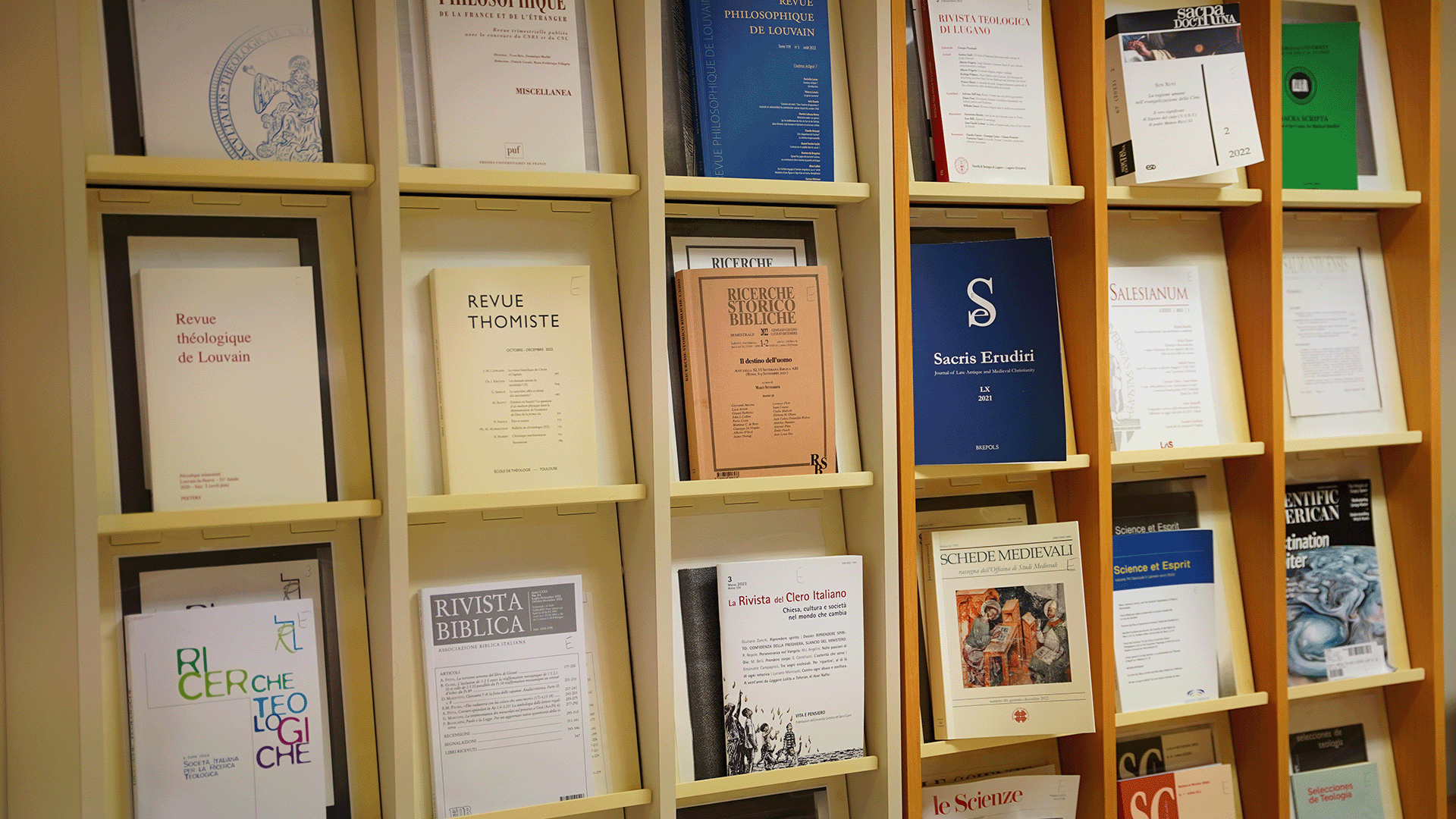Tesi di Dottorato in Filosofia
Sezione dedicata alla condivisione delle tesi di dottorato prodotte dagli studenti e ricercatori della Facoltà di Filosofia.

Dal 2001 presso l’Ateneo è attivo l’Ufficio Pubblicazioni, una struttura che opera per la promozione e il coordinamento dell’attività editoriali dell’Ateneo.
In particolare, l’Ufficio provvede alla preparazione e all’organizzazione della stampa dei volumi e si occupa della diffusione e amministrazione delle diverse pubblicazioni dell’Ateneo.
Il fine ultimo della ricerca è quello della condivisione dei risultati ottenuti e delle conclusioni raggiunte nella fase di studio. Per questo l’Ufficio Pubblicazioni ha un ruolo centrale nella comunità scientifica per far conoscere le teorie che nascono all’interno dell’Ateneo Pontificio Regina Apostolorum.
Sezione dedicata ad articoli e contributi di approfondimento realizzati da docenti, ricercatori, studenti delle nostre Facoltà ed Istituti.

Qui di seguito puoi scaricare i modelli (in Microsoft Word) richiesti dal nostro Ateneo per la redazione delle opere scritte e per la redazione degli articoli delle riviste Alpha Omega e Ecclesia.
Per eventuali dubbi sullo stile delle opere scritte e le indicazioni tipografiche dei modelli, si prega di consultare la Metodologia del lavoro scientifico, di A. MAROCCO (ed.), APRA, Roma 2004.
Per eventuali dubbi sullo stile di Alpha Omega e Ecclesia si prega di rivolgersi alla redazione della rivista.
È possibile consultare attraverso queste pagine l’archivio digitale completo di tutte le Pubblicazioni frutto delle ricerche e degli approfondimenti effettuati da studenti, docenti e ricercatori dell’Ateneo Pontificio Regina Apostolorum.
La rivista esamina e racconta il mondo dell’Ateneo Pontificio Regina Apostolorum attraverso approfondimenti e articoli di informazione.